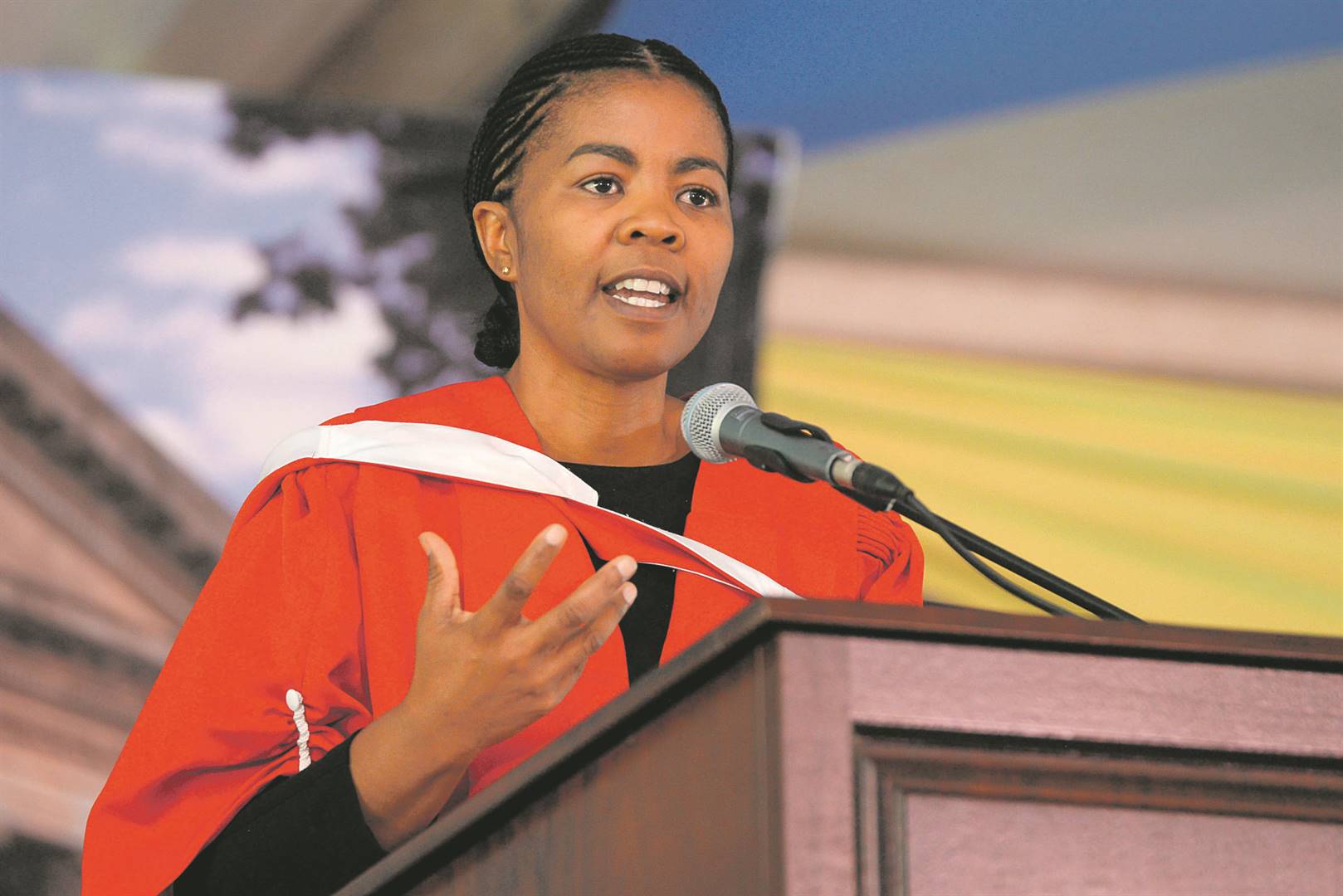
With the appointment of an administrator and the pursuit of reform, Unisa stands at the precipice of transformation. Chris Kanyane asks if it will rise from the ashes of its waning reputation, reclaiming its position as a trailblazer in education.
Recently the Minister of Higher Education, Blade Ndzimande, took the significant step of placing the University of South Africa (Unisa) under administration. This decision comes in the wake of a damning report by an independent assessor, which adds to a series of previous reports, including those from the Ministerial Task Team and the Human Rights Commission, all of which have highlighted similar adverse findings.
At the epicentre of this academic earthquake is none other than Vice Chancellor, Professor Puleng Lenkabula, whose tenure has been marked by a tumultuous tussle with mounting issues that seem to have a life of their own. But let's be clear – the tale of woe at Unisa isn't merely a consequence of Professor Puleng Lenkabula's leadership; it's a saga that predates her reign and refuses to loosen its grip on Unisa.
During her time at the helm, she devoted considerable efforts to stabilising the institution, which had already been grappling with issues before her appointment.
What led to erosion at Unisa?
The central question that emerges is: what has led to the erosion of Unisa's strength and reputation? Is this venerable institution simply unable to adapt to the radical shifts in its circumstances, or is there a more intricate underlying issue?
READ | Higher Education Minister Blade Nzimande plans to place Unisa under administration
Upon analysing all three reports – the Ministerial Task Team, the Human Rights Commission, and the recent findings of the Independent Assessor – a common thread becomes apparent. The root cause of Unisa's troubles can be traced to a condition of hypertrophy, wherein the institution has grown and ballooned in terms of student numbers and campuses. Unisa, spurred on by the siren call of the Higher Education Transformation White Paper's demand for massification, grew to epic proportions, morphing into a mammoth entity incapable of wrangling its own grandiosity. That's the crux of it – a victim of its own ambition.
It is essential to note that neither the Ministerial Task Team nor the Human Rights Commission reports single out VC Puleng Lenkabula as the source of the predicament. Instead, they emphasise her apparent rigidity in adapting to the demands of an institution that has ballooned beyond its previous proportions. This is a tale of a leader who, despite her best efforts, couldn't quite stretch her managerial muscle to sync with the colossal canvas of Unisa's expansion.
Churning the turbulent waters
Faced with governance challenges proliferating across academic and administrative spheres, Puleng Lenkabula's response seemed to be a freeze in place strategy, characterised by attempts to exert control, enforce compliance, and curb dissent. Regrettably, these measures not only failed to quell the brewing tempest but only served to churn the turbulent waters even more.
As Unisa embarks on a period of administration and transition, it is clear that addressing the problem of hypertrophy will be crucial to its future success. The challenge at hand is to find a way to navigate the demands of massification while simultaneously ensuring effective governance, academic quality, and administrative efficiency. The story of Unisa serves as a cautionary tale, reminding us of the complexities inherent in managing institutions that have undergone significant growth and transformation.
READ | 'Unisa is far from collapsing,' says Council after damning report
Now, as Unisa is thrust into an era of administration, a saviour must emerge to untangle this academic Gordian knot. The administrator, bearing the weight of an institution's fate on their shoulders, must not only navigate the treacherous seas of dysfunction but also perform the Herculean task of reconnecting with the departing vice-chancellor. A diplomatic dance of wits awaits, where cooperation trumps grievances, and unity reigns supreme in the pursuit of salvaging Unisa's tarnished reputation.
Stepping into the role of an administrator comes with multifaceted responsibilities. Primarily, they are tasked with assessing the institutional landscape, identifying systemic weaknesses, and formulating strategies to rectify them. Collaborating with existing faculty and staff, the administrator must establish a sense of unity and direction, ensuring that the university continues to function smoothly during this transition.
Challenges of the 21st century for Unisa
One of the key roles of the administrator is to restore trust and credibility. This involves streamlining governance structures, enhancing transparency, and promoting accountability at all levels. By implementing necessary reforms, the administrator can pave the way for a more effective and responsive administration.
As Unisa navigates this critical juncture, the ability of the administrator to bridge gaps and initiate productive dialogues will play a pivotal role in reshaping the institution's future.
Founded in 1873, Unisa embarked on a journey that promised to reshape the landscape of higher education. With its unique focus on correspondence courses, Unisa shattered the traditional mould, opening doors to knowledge for those who couldn't attend brick-and-mortar institutions. The world marvelled at its innovative spirit, and its reputation soared to dizzying heights.
Unisa's triumphant march through history began to falter as the tides of time wore away at its once-shining reputation. The 21st century brought with it unprecedented challenges – challenges that Unisa seemed ill-equipped to confront.
In its bid to answer the clarion call for massification, Unisa expanded its horizons, growing to a mammoth size. The echoes of its former glory seemed drowned out by the clamour of chaos, as administrative snags and governance gaffes began to rear their ugly heads. The hallmark of correspondence courses, once a badge of distinction, started to appear outdated and out of touch in an era of rapid technological advancement.
Now, with the appointment of an administrator and the pursuit of reform, Unisa stands at the precipice of transformation. Will it rise from the ashes of its waning reputation, reclaiming its position as a trailblazer in education? Only time will tell if Unisa's storied history will culminate in a triumphant resurgence or continue down the path of decline.
- Chris Kanyane is a former Chief Researcher at the Human Sciences Research Council.
*Want to respond to the columnist? Send your letter or article to opinions@news24.com with your name and town or province. You are welcome to also send a profile picture. We encourage a diversity of voices and views in our readers' submissions and reserve the right not to publish any and all submissions received.
Disclaimer: News24 encourages freedom of speech and the expression of diverse views. The views of columnists published on News24 are therefore their own and do not necessarily represent the views of News24.




 Publications
Publications
 Partners
Partners























